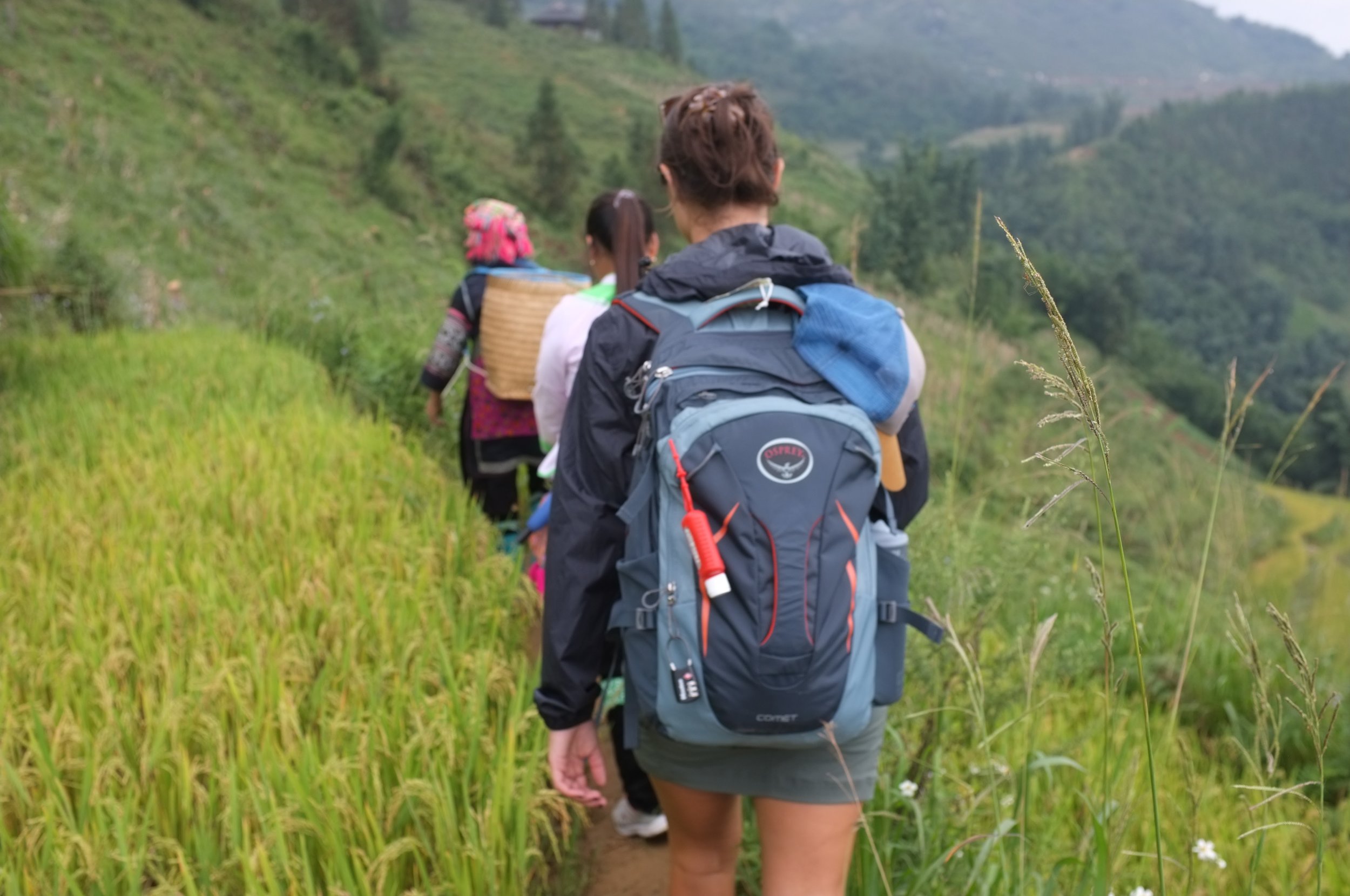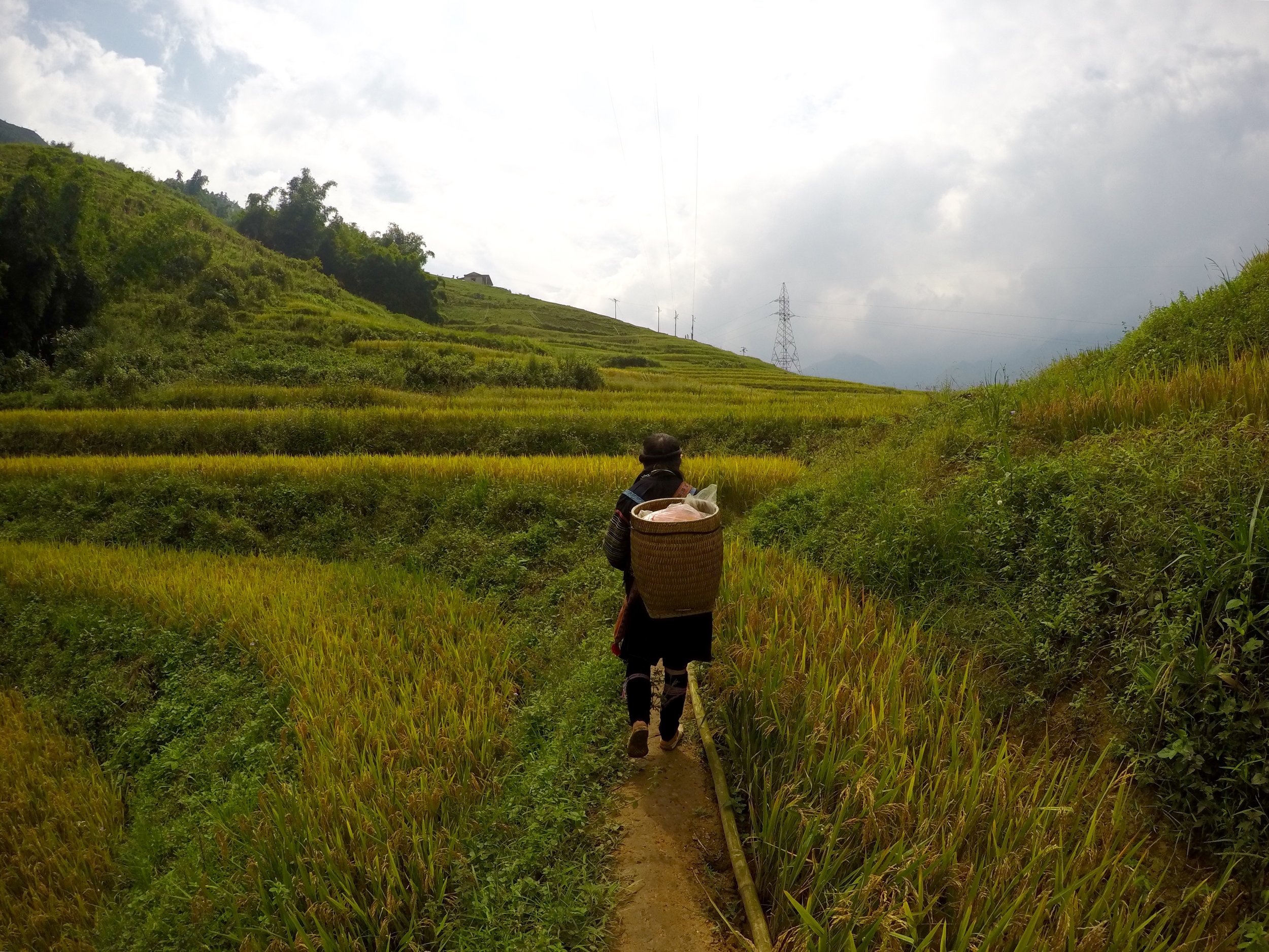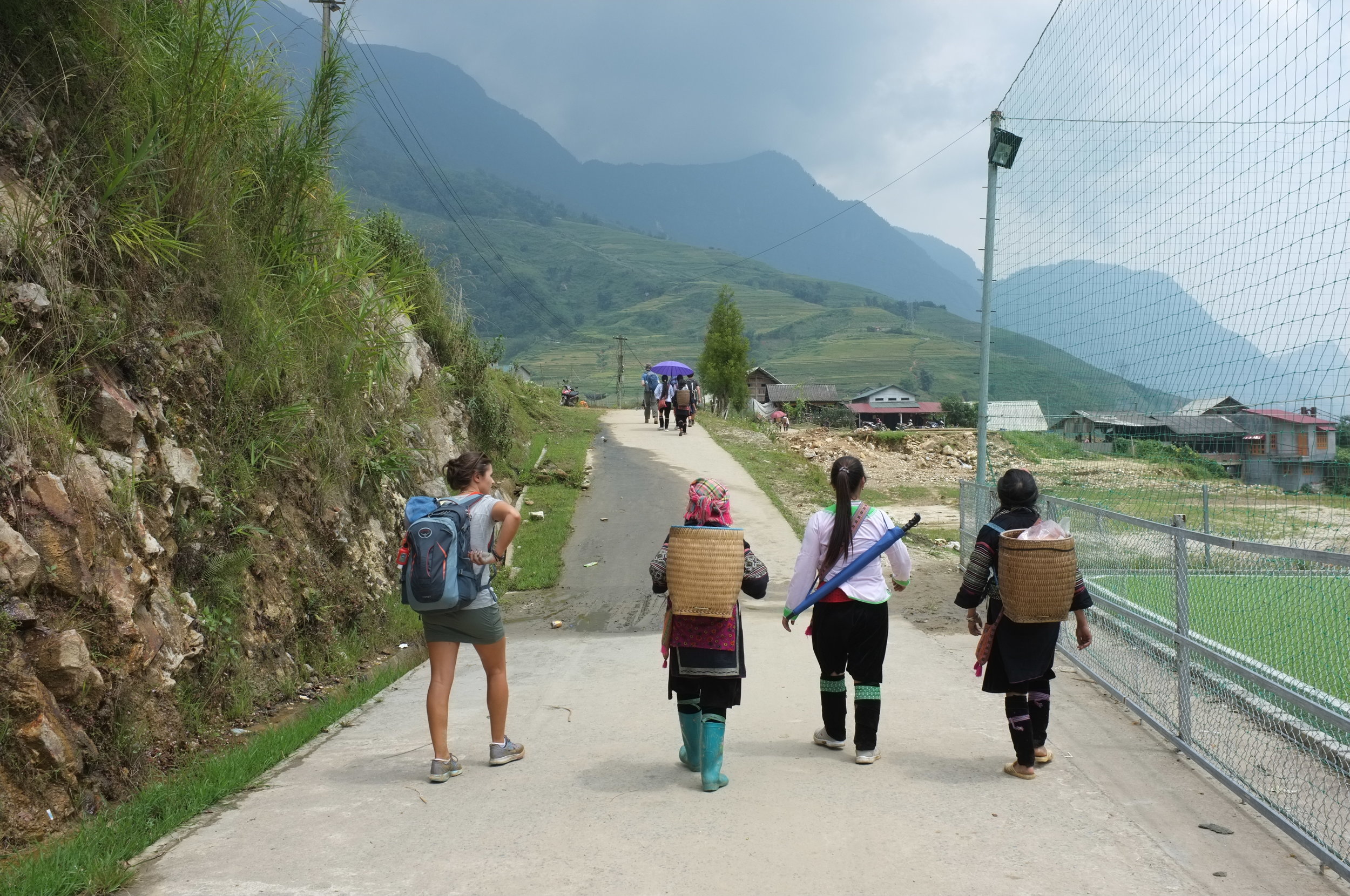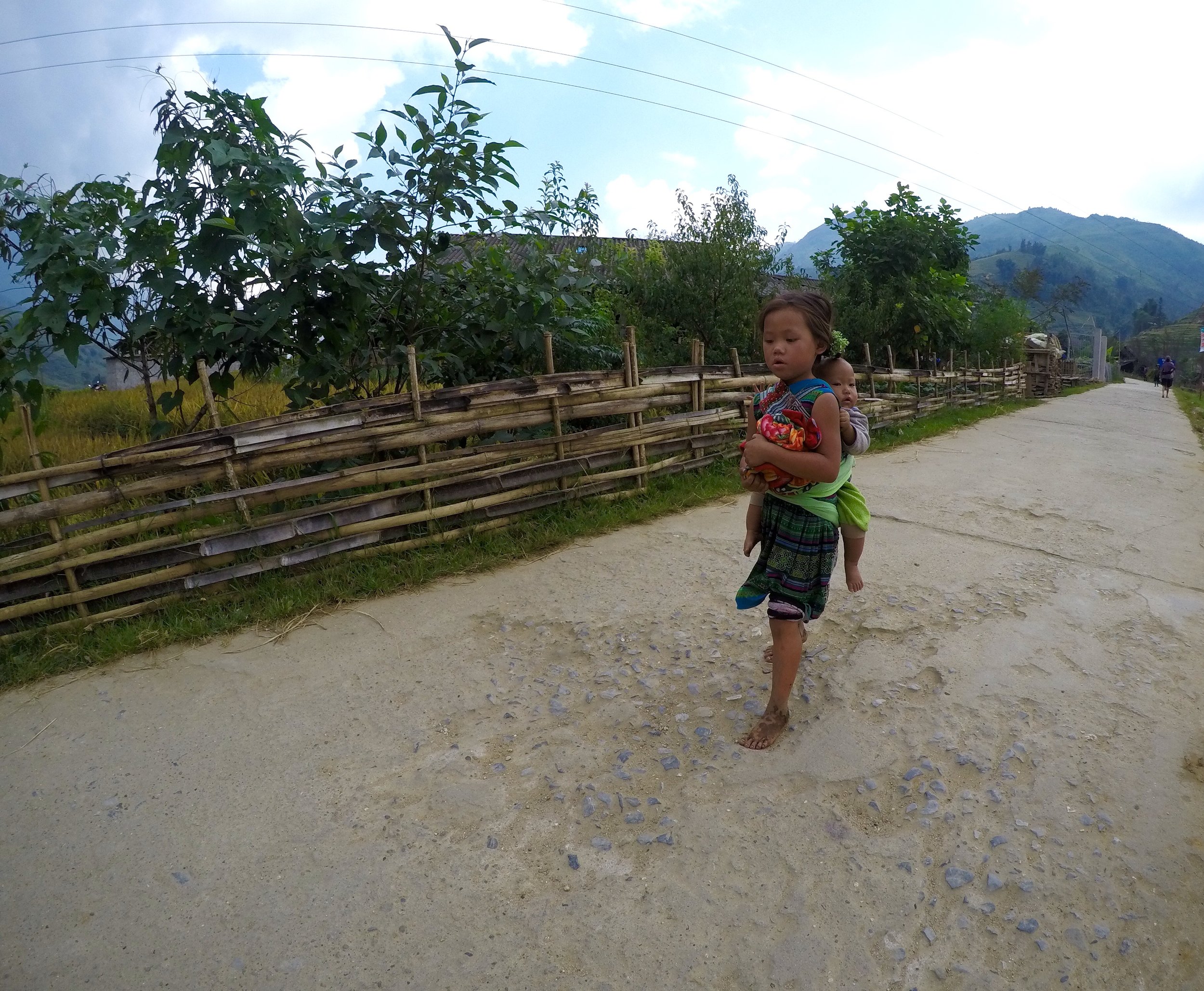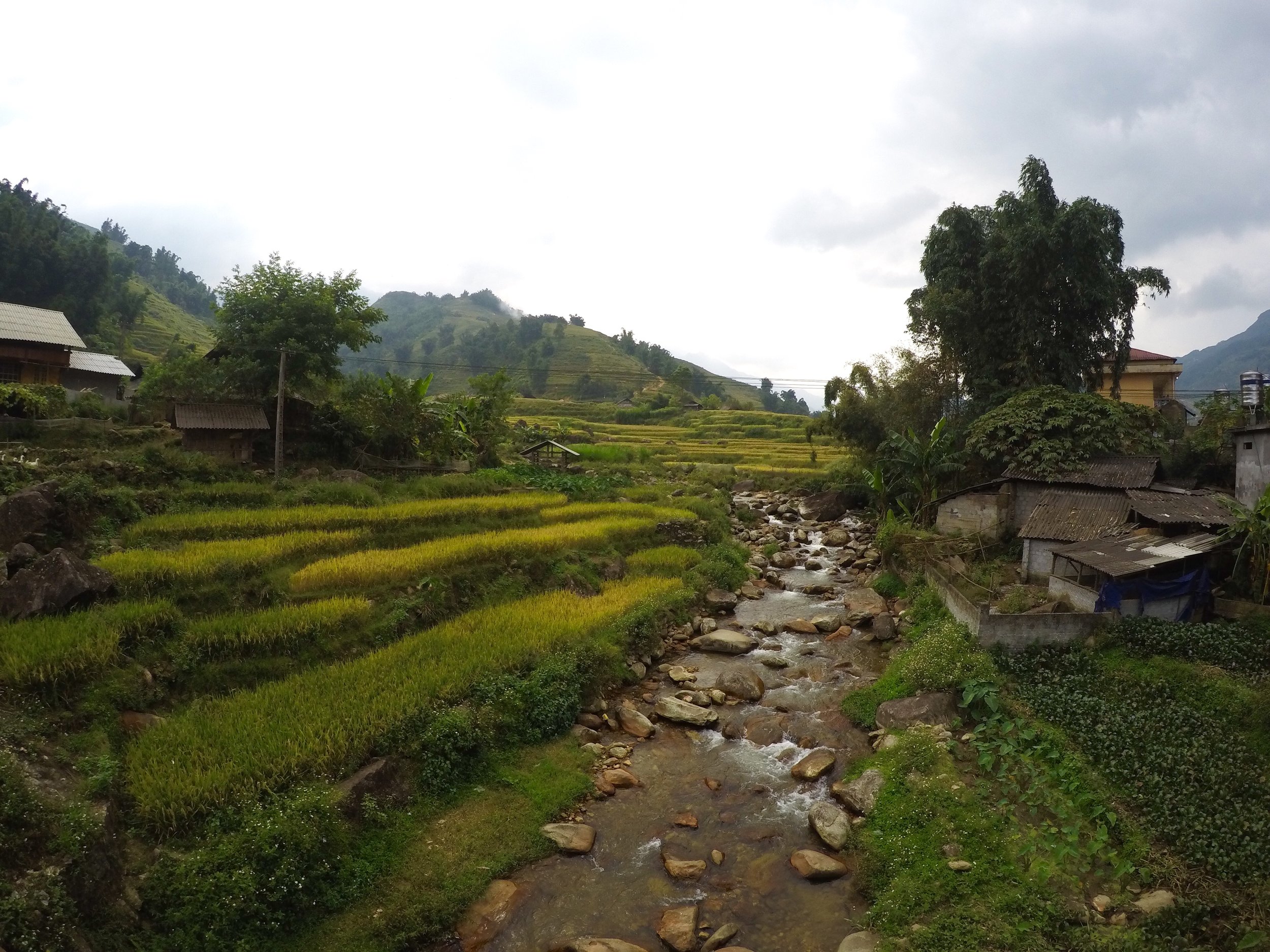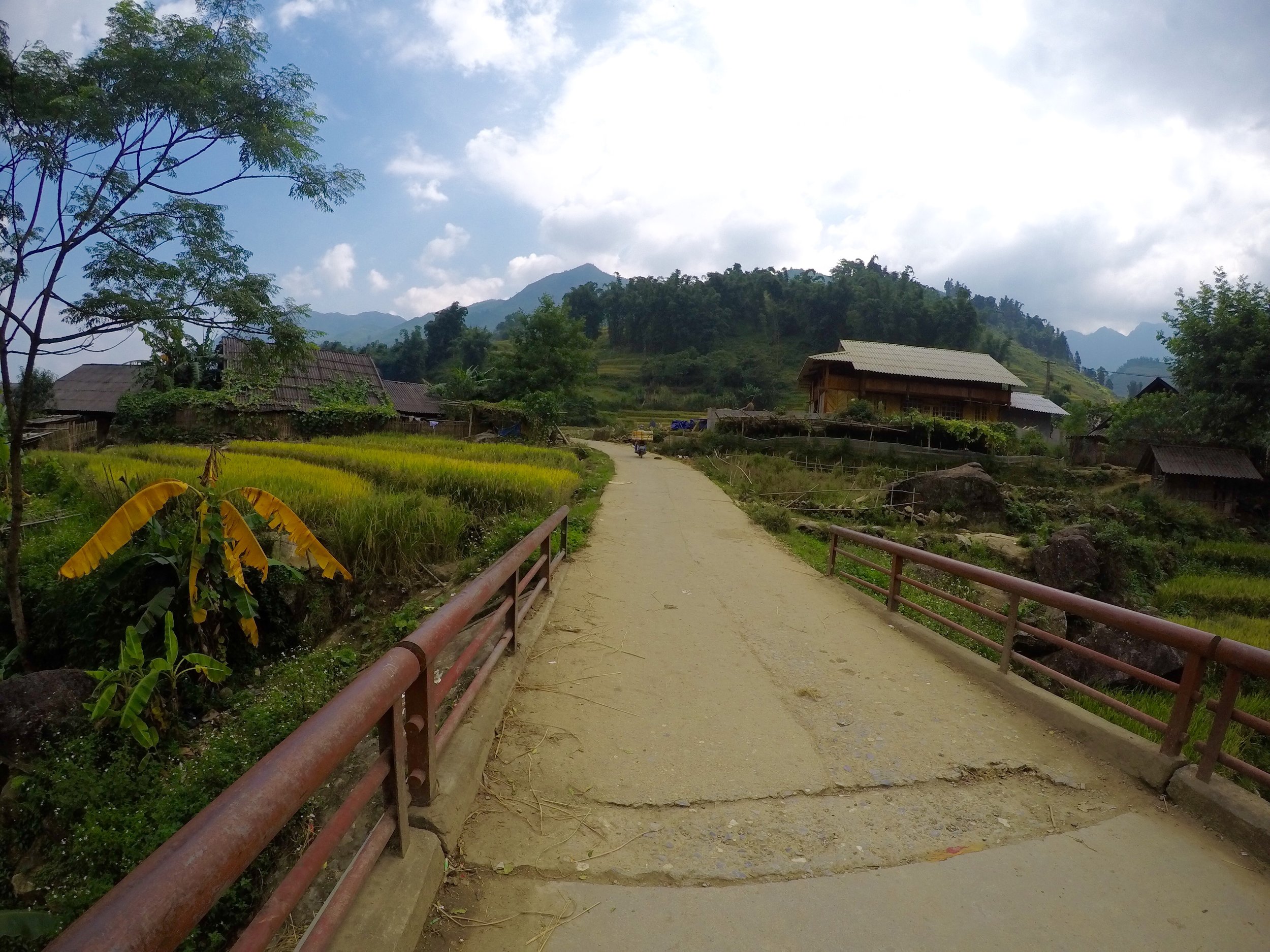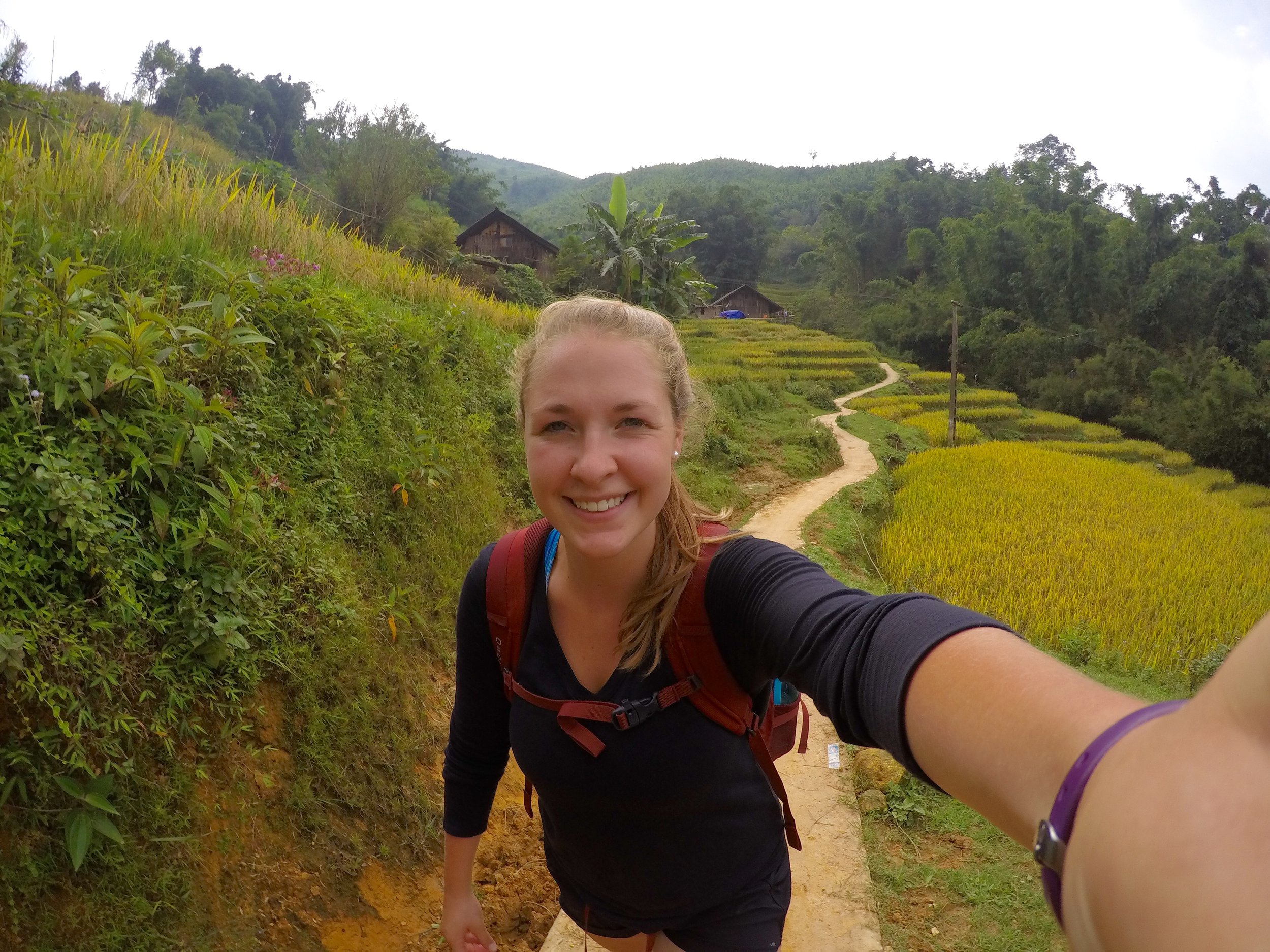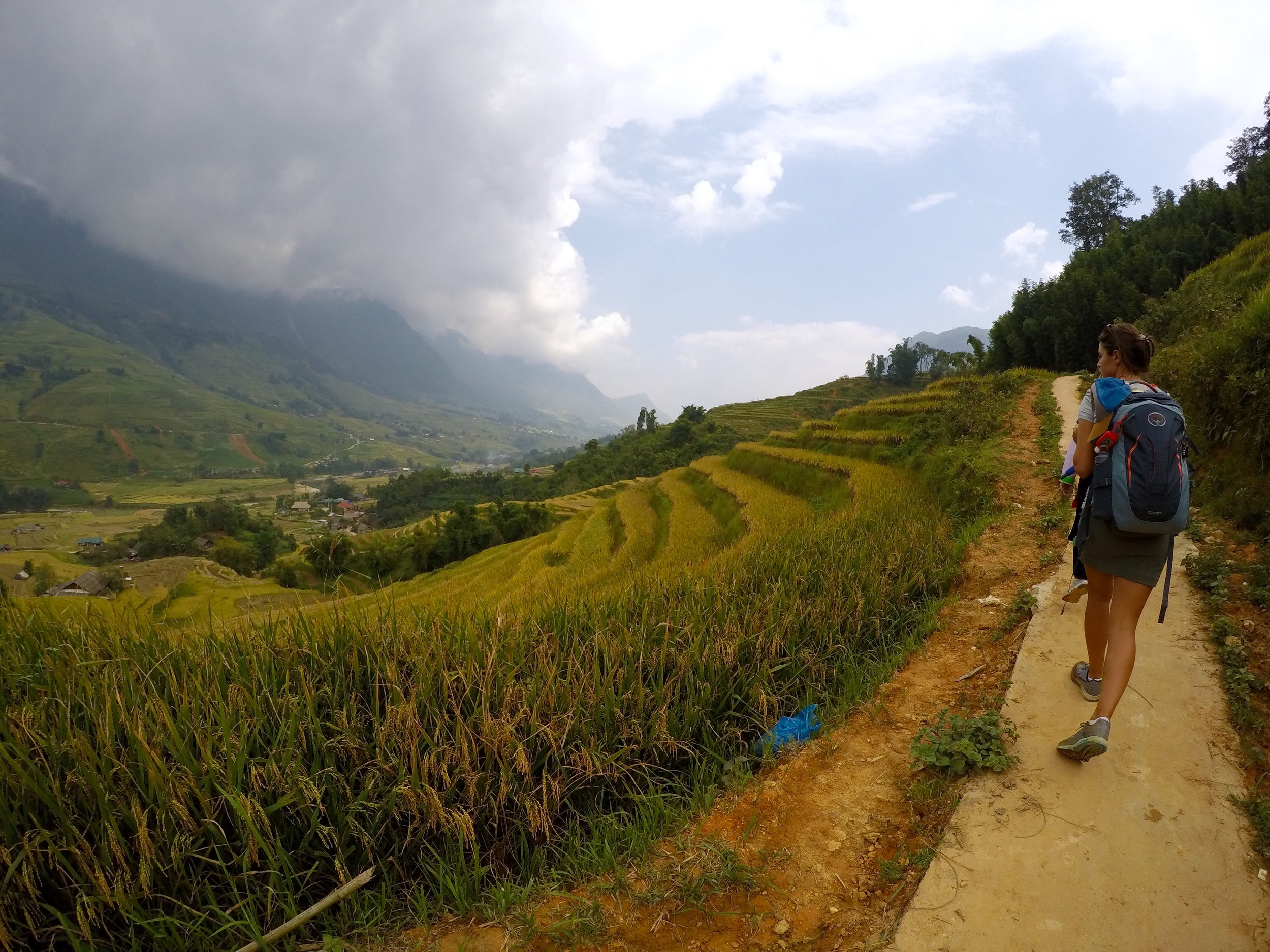Trekking in Sapa
Sapa was stunning. We took an overnight bus from Hanoi to Sapa for $18 and arrived at 3am. The bus driver graciously allowed us to sleep on the bus until 6am. Though this was kind, Vietnamese bus drivers are ruthless. I was expecting someone to gradually turn the lights on, walk around and softly say, “wake up, it’s time to get off”. I guess that's asking too much (still adjusting to Southeast Asian culture), but this guy flipped on the lights and shouted over the loudspeaker “WAKE UP LEAVE NOW”. We had no idea where we were going.
We got off the bus are there are lots of ladies in traditional hill tribe costume eager to get tourists to sign up for a trek and homestay with them. The ladies were very friendly and spoke English really well. But DAMN, they were insanely persistent. We were trying to be polite, as we had already booked a trek through a company online, but they wouldn’t leave us alone. A group of them followed us into town for what felt like a mile until we started completely ignoring them. We had booked a two day trek with a one night home stay through Sapa Sisters Trekking Company. They had great reviews on Trip Advisor, so I felt confident booking the tour ahead of time. We were disheartened when we first got to Sapa and realized that this company charged almost double for the same tour offered by the women on the street. It didn't take long for us to realize that we, in fact, were lucky to have booked the more expensive tour for two main reasons:
- You get what you pay for- the service, food, and accommodations provided by Sapa Sisters was fantastic. Our guide spoke excellent English (by practicing with foreigners) and was able to alter our trek to our liking because it was just me and Marissa with one guide.
- Safety: Most women who lead treks do not get the necessary permits for foreigners to enter the national paths that pass through local villages. Therefore, they take tourists on alternate, unofficial and potentially dangerous routes. Just days before we arrived in Sapa, a German man fell to his death down a waterfall during a “illegal” trek with a non-certified guide. Also, when one gets the required permit, he or she is registering the trek with the National Park and can get help quickly in the case of an emergency.
Culture Shock
Our guide, Mao, taught us all about her life as an Hmong woman. She is 22 years old, has one child and is pregnant with her second. She plans to trek until the day she gives birth and will continue leading treks one month after giving birth. She was curious if either Marissa and I were married. When we said no, she asked if premarital sex was common where we are from. Premarital sex is absolutely prohibited among Hmong people. She then blew our minds enlightening us about Hmong relationships. My feminist friends reading this are about to lose their sh*t. She started off by saying marriages used to be arranged, which occasionally resulted in Hmong women dying by suicide after eating poisonous plants found in the mountains. Now, women can choose their partners...kinda. If a man and a women are dating and the man wants to get married, but the woman doesn't, he kidnaps her.
Kidnapping process: A man forcibly removes the woman he desires to marry from her home and takes her to his house. The woman is watched for 48 hours straight by the man, his mother, or another relative. During this time, the kidnapped woman cannot so much as use the bathroom without being observed. She is forced to sleep in the same bed as her abductor. They do not necessarily have sex, but because she slept in the same bed as a man, she is rendered undesirable for marriage. Thus, the woman has no choice but to marry her abductor or never get married.
Mao was actually abducted by her own cousin and is currently married to him. She said that she didn't love him at first but loves him now. She said one of her friends cries a lot because she doesn't like her husband. However, her friend is just recently pregnant so she cries less and is starting to fall in love with her husband. Yikes.
